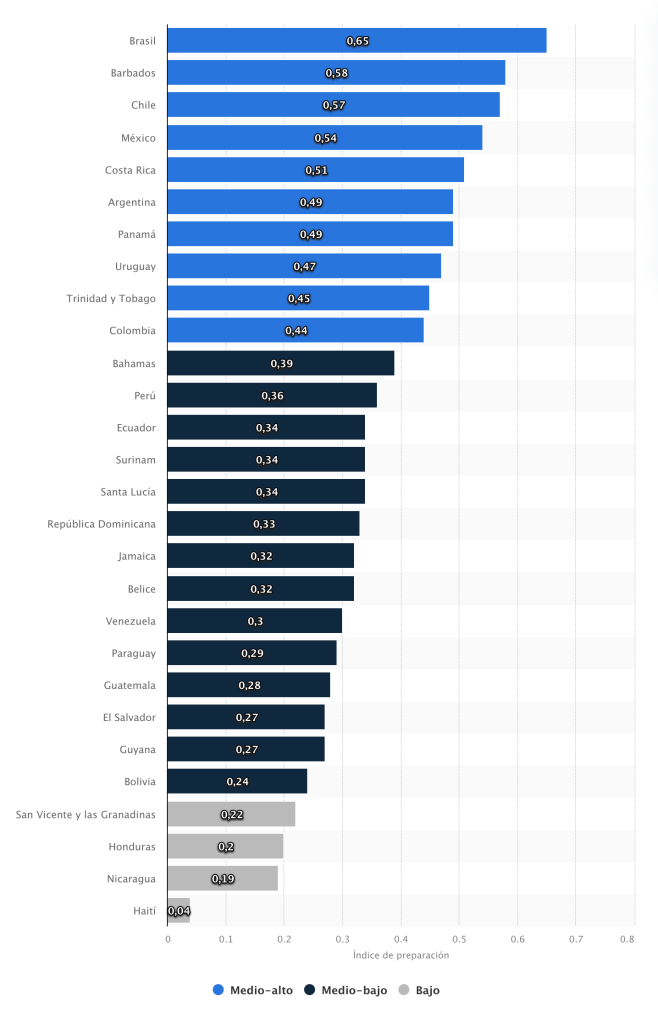Why the ‘Digital Native’ notion does not apply to Zoomers everywhere and considerations for regional INGOs
“We need fresh ideas and new content, and we need to get these ideas out everywhere fast,” the coordinator of a humanitarian aid programme said with a sense of urgency. Data analytics of several social media channels showed limited success, and donors were demanding more. The team needed to improve the campaign’s performance and ROI in a month, using all hands on deck to ensure it was youth-friendly and received Government buy-in and support. A colleague suggested that Sarah, the new assistant, would be the ideal lead for revamping the campaign since she was young and would know what was trending.
The 24-year-old recently graduated with an MA in Communications and was now settling into her first job in the country office.
Generation Z, also called iGen, Gen Zers or Zoomers, are the catalyst of social change, with social media often being their weapon of choice. They are passionate about causes, mostly made aware of them through social media.
Assumptions
The assumption, however, was that Sarah should (not might) know what to do to improve the campaign and could mobilise her passion for the humanitarian cause to bring awareness to it. Within that was another assumption – that she was passionate about the cause.
There is a common supposition about Gen Zers and technology, particularly within INGOs – that having grown up immersed in technology, Generation Z is ‘native’ or familiar with it and can effectively use social media in development communication for the benefit of organisations. However, INGOs within developing countries appear to lack consideration for those born in these economies where technology was slow to advance. Caribbean Gen Zers still lag behind their global counterparts, rapidly harnessing these tools for social value creation due to early access to them and a better understanding of technology.
There is an expectation that Gen Zers should be aware of digital trends and technologies and, if unfamiliar, catch up. It is not an unreasonable expectation but one, in my experience, that fails with Gen Zers in countries where the digital divide was large during the internet revolution.
Digital Native Vs Immigrants
Considering those assumptions can we refer to Caribbean Gen Zers as ‘Digital Natives’ then? Certainly not, in my opinion. Let’s explore some definitions to better understand the complexities of the term and assumptions.
Digital Natives is a term accredited mainly to Marc Prensky and Don Tapscott between 1998, 2001 and 2009. The term refers to those who have grown up in the era of new technology and, surrounded and dominated by digital technology, is au fait with Information and Communication Technologies (ICT). They lack ‘little or no recollection of life before the Web’ (Creighton, 2018; Boukacem-Zeghmouri & Schöpfel, 2013).
Literature debates the timeline for those considered Digital Natives but agrees that it is Generation Z born after 1993 or between 1995-1997 to 2012 who fit this category.
However, Caribbean Gen Zers are likely to be defined as Digital Immigrants, the same as their millennial counterparts, or both. Digital Immigrants were not born into the digital world but have adapted to and are using new technology.
Those born between 2008-2012 are better defined as natives, but this is cautiously said as the Caribbean lags behind other countries in ICT development.
However, it is argued that the term Digital Natives has no common-accepted definition and can vary among individuals, societies, regions and nations over time. Age variations are also included (Gallard-Echenique et al., as cited in Creighton, 2018).
The Caribbean Reality
Although Caribbean leaders recognised the need to bridge the digital divide and the benefits of ICT4D, there was a significant focus on food security, climate change, the financial market, infrastructure, healthcare and education. These critical areas gravely affect poorer economies, and governments were eager to address and alleviate issues associated with these. The collapse of the sugar industry, several natural disasters, political and financial instability and COVID-19, crippled the region and presented many challenges to its development. Countries are deep in debt, vulnerable and susceptible to the climate and have a deep-rooted culture of racial and gender inequality.
However, investment in ICT4D is growing, but there is still a long road ahead before reducing the digital gap. This requires a change in national policies and programs and greater investment in the sector. Still, economies like Guyana are eager to close the gap.
According to a study (see figure below) that evaluated the level of preparation of countries for the adoption and development of cutting-edge technologies like artificial intelligence, the Internet of Things (IoT), big data, robotics, 5G, nanotechnology, etc. – no Latin American or Caribbean country reached a high level of preparation (Statista, 2022).
 Latin America: preparation for cutting-edge technologies by country 2021 (Statista, 2022)
Latin America: preparation for cutting-edge technologies by country 2021 (Statista, 2022)
The gap will exist for some time, and it is for others to remain cognizant that we are not all the same across the region or world. We cannot be boxed into being Natives, maybe not even Immigrants. We are still learning.
‘The fallacy of the ‘digital native’ by ICDL Europe drew several conclusions based on issues connected with assumptions of the Digital Native term. These conclusions align with the reality of Caribbean Gen Zers, many of whom lack basic ICT skills and have little to no internet access in rural areas. Young people do not intuitively know to use digital technologies as assumed by adults and policymakers and even tend to overestimate their level of digital skills. Further, exposure to technology cannot be equated with the ability to use it, and young people often fail to acquire the digital skills needed in the labour market. They assume their ability to navigate social media, for example, means they are equipped for work and can become social media marketers, managers and specialists overnight.
The lag in innovation and digital technology in the Caribbean region has impacted the skillset of the regional Millennials and Gen Zers workforce. To embrace the Fourth Industrial Revolution, which builds on the Digital Revolution, the workforce must become skilled in existing and emerging technologies and data decoding (Valencia, 2020). Skill development requires professional training for those who are no longer in school or university or have the desire to learn, on their own, about digital technologies.
‘Learners of Digital Era’ (LoDE), coined by Emanuele Rapetti and ‘Digital Learner’, coined by Gallardo-Echenique, have similarities in their definitions that may better define Caribbean Gen Zers and Millennials. Learners are more than consumers. They recognise the value of technology and the potential and opportunities digital technologies present, adopting a ‘socio-cultural, anthropological, communicational and pedagogical approach from a learners’ perspective (Creighton, 2018).
Considerations for INGOs
Some Caribbean Gen Zers like Sapphire Alexander (@Caribbean Feminist) and Jénine Shepherd (@Youths For Excellence) have successfully harnessed digital technologies, particularly the internet, to create significant social impact. This includes raising awareness for causes that demand action for change. Being from the region, they were not equally a part of the internet revolution as it unfolded in the developed world. They are still learning to harness this power much more rapidly than millennials. However, it is noteworthy that countries like Jamaica and Trinidad, where Sapphire and Jénine originate, were the more developed economies in the region, leading ICT4D, unlike other poorer and smaller economies.
Also, Gen Zers and Millenials working in INGOs based in Guyana, Trinidad, Jamaica, and Barbados are steering successful social media campaigns in the digital landscape. The Spotlight Initiative is an example. INGOs have been able to develop the skills of their interns and staff through training, a method that has proven to be the most effective for campaigns.
However, the Caribbean Diaspora of Millennials and Gen Zers living or born in the developed world have readily embraced the digital revolution. Fiona Compton (@Know Your Caribbean) and Vinay Harrichan (@The Cutlass Magazine) are some examples of those who have had a significant impact on regional culture online by using social media to mobilise support for causes while raising awareness of several concerns within the Caribbean such race and gender bias, homophobia and other systematic issues.
They remain active on social media and, without formal training, have taken the initiative to raise awareness, navigating the digital landscape effectively and successfully.
The onus, therefore, still lies on Gen Zers to be innovative and take the initiative and learn how to use digital technology as we enter a new digital world.
Optimism for the Future
We can be optimistic that economies like Guyana, which remain on the cusp of economic transformation due to the oil and gas industry, will contribute to the transformation and growth of ICT4D in the region, helping smaller economies. Countries that have led regional transformation, like Trinidad and Jamaica, continue to grow. Gen Zers and Generation Alpha will benefit from better internet access and digital opportunities.
While these improvements do not guarantee a better internet culture, Caribbean Gen Zers must learn to harness the internet’s transformative power to reshape their economies, politics, policies and culture. The onus lies on them to learn new technologies as much as the onus is on the INGOs who employ them to provide training.
What other methods can INGOs utilise to help Caribbean Gen Zers in the workforce? Let me know in the comments!
Sources:
Boukacem-Zeghmouri, C. & Schöpfel, J. (2013). Beyond the Google generation: towards community-specific usage patterns of scientific information in Trends, Discovery, and People in the Digital Age: A volume in Chandos Digital Information Review.
Creighton, T. (2018). Digital Natives, Digital Immigrants, Digital Learners: An International Empirical Integrative Review of the Literature [Electronic version]. ICPEL Education Leadership Review, 19(1), 132-140. Retrieved from https://files.eric.ed.gov/fulltext/EJ1200802.pdf.
Valencia, A. (August 14, 2020) The Caribbean: A Private Sector’s Challenge to Increasing Productivity and Growth – Part I. Retrieved from https://www.idbinvest.org/en/blog/development-impact/caribbean-private-sectors-challenge-increasing-productivity-and-growth-part
Statista (2022). Latin America: preparation for cutting-edge technologies by country 2021. Retrieved from https://es.statista.com/estadisticas/1220908/america-latina-indice-tecnologias-vanguardia-pais/.
Photo by Maxim Hopman.

